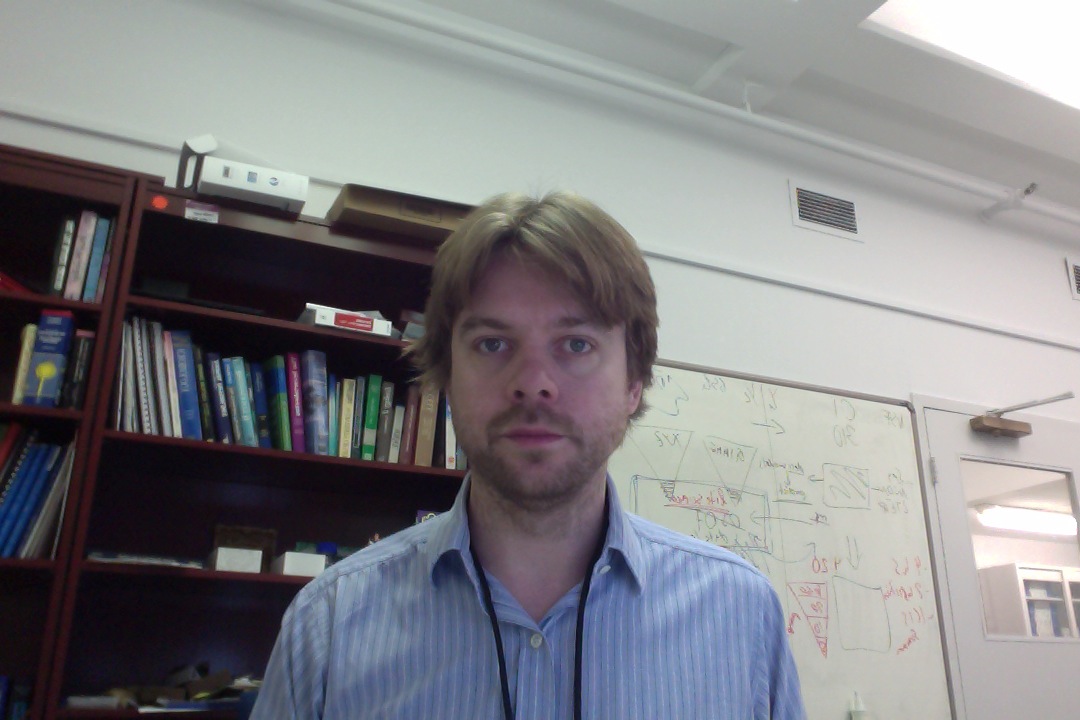|
|
Biography |
|
|
 Dr Gilbert earned his Ph.D. from Nottingham University, UK in 2002, and received his postdoctoral training in Canada at Queens University. We subsequently returned to the UK in 2005 and worked for Plymouth Marine Laboratory at a senior scientist until his move to Argonne National Laboratory and the University of Chicago in 2010. Dr Gilbert is a Senior Environmental Microbiologist at Argonne National Laboratory, adjunct Professor in the Department of Ecology and Evolution at University of Chicago, fellow of the Institute of Genomic and Systems Biology, and affiliated with the Department of Mathematical and Computational Sciences.
Dr. Gilbert has research interests in microbial community ecology. He is currently applying next-generation sequencing technologies to microbial metagenomics and metatranscriptomics to test fundamental hypotheses in microbial ecology. He has authored >60 publications and book chapters on metagenomics and approaches to ecosystem ecology. He has focused on analyzing microbial function and diversity, with a specific focus on nitrogen and phosphorus cycling, with an aim of predicting the metabolic output from a community. Specifically, microbial ecosystem services through resource provision and feedback loops associated with higher organism productivity. He is currently working on generating observational and mechanistic models of microbial communities associated with aquatic and terrestrial ecosystems. He is on the board of the Genomic Standards Consortium (www.gensc.org) non-profit organization committed to improving metadata standards for metagenomic data submissions, is an editor for PLoS ONE and the ISME Journal, and is co-leading the Earth Microbiome Project (www.earthmicrobiome.org).
Dr Gilbert earned his Ph.D. from Nottingham University, UK in 2002, and received his postdoctoral training in Canada at Queens University. We subsequently returned to the UK in 2005 and worked for Plymouth Marine Laboratory at a senior scientist until his move to Argonne National Laboratory and the University of Chicago in 2010. Dr Gilbert is a Senior Environmental Microbiologist at Argonne National Laboratory, adjunct Professor in the Department of Ecology and Evolution at University of Chicago, fellow of the Institute of Genomic and Systems Biology, and affiliated with the Department of Mathematical and Computational Sciences.
Dr. Gilbert has research interests in microbial community ecology. He is currently applying next-generation sequencing technologies to microbial metagenomics and metatranscriptomics to test fundamental hypotheses in microbial ecology. He has authored >60 publications and book chapters on metagenomics and approaches to ecosystem ecology. He has focused on analyzing microbial function and diversity, with a specific focus on nitrogen and phosphorus cycling, with an aim of predicting the metabolic output from a community. Specifically, microbial ecosystem services through resource provision and feedback loops associated with higher organism productivity. He is currently working on generating observational and mechanistic models of microbial communities associated with aquatic and terrestrial ecosystems. He is on the board of the Genomic Standards Consortium (www.gensc.org) non-profit organization committed to improving metadata standards for metagenomic data submissions, is an editor for PLoS ONE and the ISME Journal, and is co-leading the Earth Microbiome Project (www.earthmicrobiome.org).
|
|
|
|
|
|
|
Abstract |
|
|
|
|
The Earth Microbiome Project: A new paradigm in geospatial and temporal studies of microbial ecology. |
|
|
|
|
|
For three decades we have had the capability to take a molecular peak at microbial life on our planet. However, it is only within the last few years that it has become possible to explore the microbial earth with any semblance of depth. With these exciting new technologies comes great responsibility; not least of these is the necessity to appropriately record information about each study. Here we present the Earth Microbiome Project (www.earthmicrobiome.org), an international effort to redefine our exploration of this frontier. Here we will outline the project aims and goals, and explain why and how the paradigm shift must occur. There are more bacteria in the oceans alone than stars in the known universe, and hence we need a systematic and defined approach to survey this biosphere. Importantly, a survey is only as good as the analysis of the data. Here we will employ revolutionary new algorithms to explore the synergy between existing data and new data to explore overlap and identify gaps in knowledge. Additionally, through metagenomic sequencing we will create a metabolic map of microbial life on this planet, which will shape and define our perspective of how life responds and adapts to changes in the environment. The preliminary EMP projects will be discussed in terms of their immediately findings and how much they tell us about the task ahead. O’Dors Law of Biology states that “Physics and chemistry have laws, while biology only has lawyers looking for loopholes”. It is essential that we better define these biological laws and help to reduce the knowledge gap that prevents us from managing the resources of this planet effectively. |
|
|
|
|